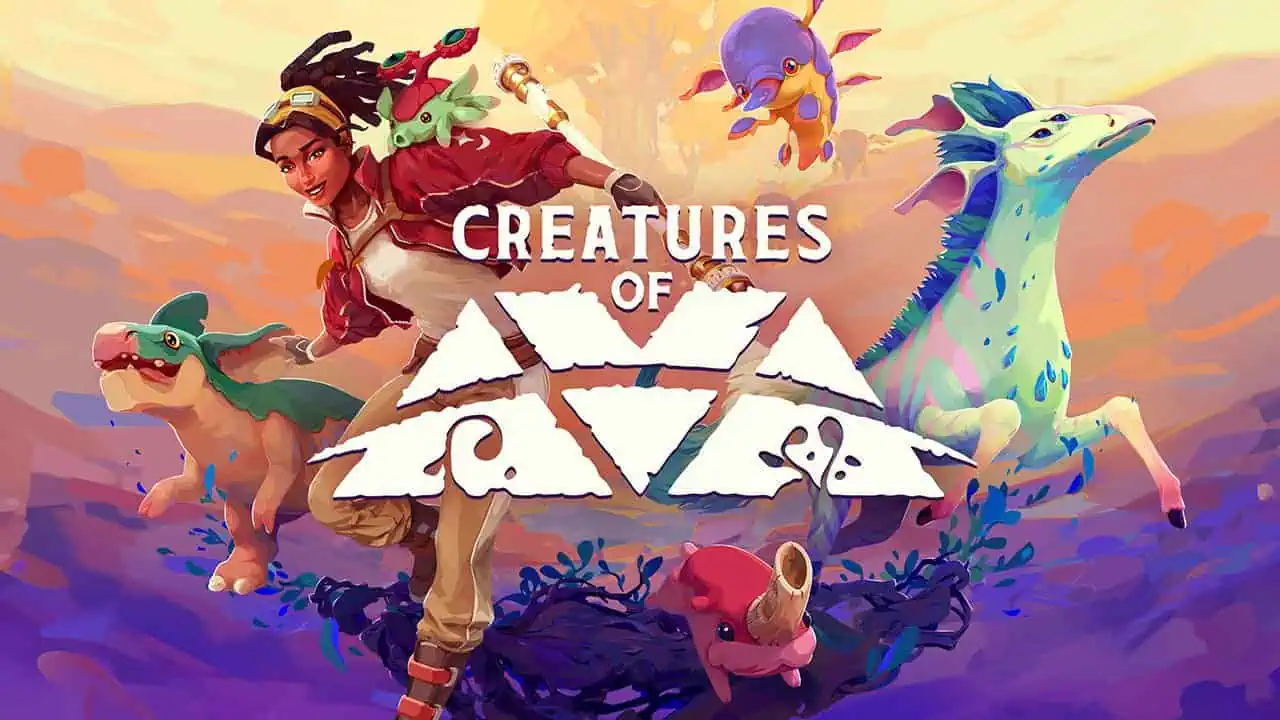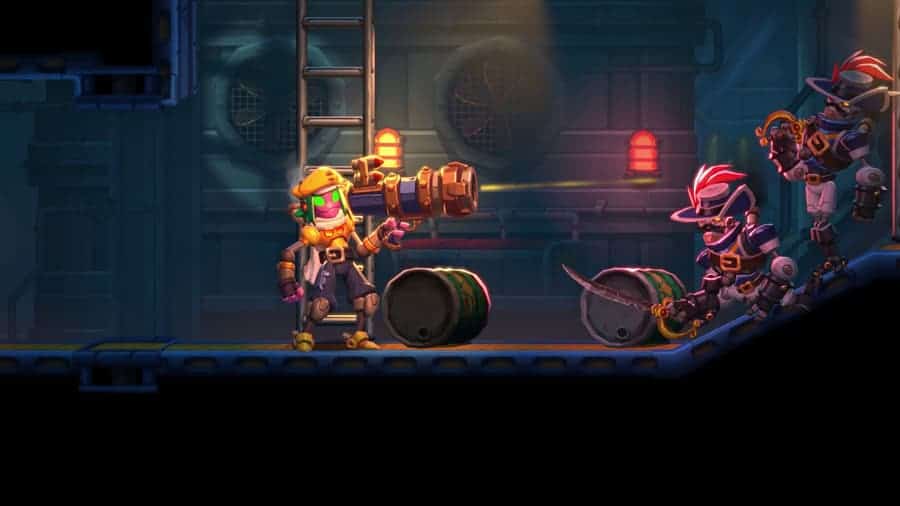Cyberpunk 2077 Review

Official Score
Overall - 60%
60%
Cyberpunk 2077 is a great game, but it could have been an incredible game that defined a generation. Instead, it falls victim to its own ambition and the industry's constant desire to push, push, push it out. In its current state, it's not for the faint of heart, and even hardcore Cyberpunk fans may struggle to stay interested amidst all the crashes and issues. If you have yet to pick it up, wait a few months and you could very well be treated to the experience we were all hoping for at launch.
Following the critically acclaimed The Witcher 3 is no easy feat. Coupling that with the expectations placed on one of this generations’ most anticipated titles, Cyberpunk 2077 had an uphill struggle to face at best. CD PROJEKT RED looks to bring the open-world brilliance and awe of The Witcher 3 to a bigger, grander stand, complete with Cyberpunk aesthetics, cutting-edge shooting, and a cast of interesting characters and stories. Does it meet the lofty expectations held by many?
Frankly, no it does not.
Cyberpunk 2077 Review
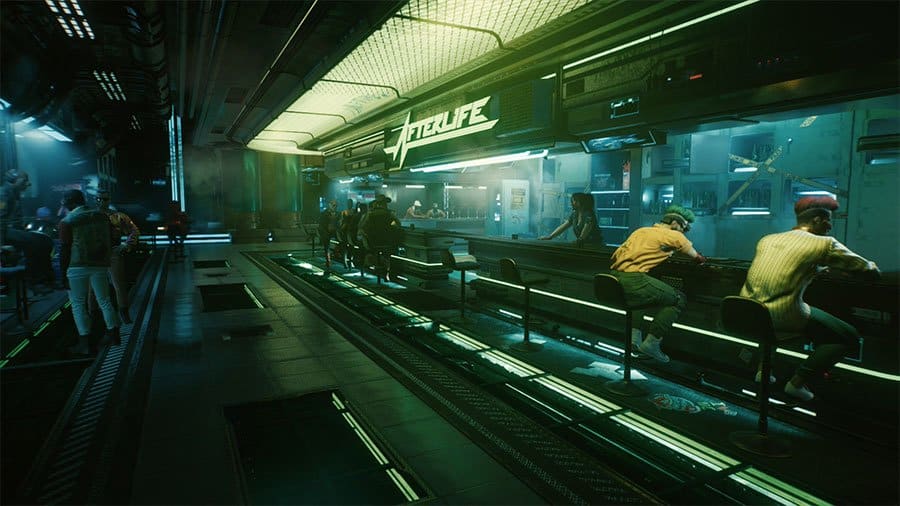
Before we dive into the meat of the review, I want to make it perfectly clear that this review was written based entirely on my experience playing on the PlayStation 5. It’s common for games to perform differently depending on platform but very rarely are the differences as huge as they are in Cyberpunk 2077. I’ve briefly played the game on the PlayStation 4, enough to know I didn’t want to play it any further. The game is not playable on the PlayStation 4 Pro, and in my opinion should never have been sold in its current state. Playing on the PlayStation 5 is not without its woes, but there is a diamond in the rough – if you have the patience to stomach it.
Do not buy Cyberpunk 2077 on any other platform based on this review. Hell, if you have yet to buy the game, don’t. Give it a few months to be finished.
The story begins as you create your very own version of V, the game’s protagonist that takes on many forms depending on the choices you make throughout your adventures in Night City. After a brief but worthwhile character creation suite (where you can change your hair, genitals, gender, voice, and cyberpunk visuals), you choose your career path in life, your ideals and your goals. There are three choices to make: Street Kid, Corpo, and Nomad.
I stuck with Nomad for my main playthrough. The concept of unity and family coming first is one I admire, and despite V being a terrorist, a murderer, and a thief, I wanted to take the “good guy” approach. The career path you choose is quite an important part of the role you will play. The first couple of hours are unique based on the three different starting careers choices. Although some are far more exciting and in-depth than others, they all provide enough story and character to give the player the understanding of the backgrounds, goals, and desires of each version of V. While the impact of this choice does wane in many parts of the game, it does unlock unique dialogue options and relationship opportunities as you progress.
After finishing off my introduction to the Nomad style of life (a rather disappointingly bland introduction compared to the other two), I ventured off to Night City. This sprawling metropolis on the horizon is a city ruined by corporate greed and lawlessness, ran by the corrupt and suffered by the many. This initial moment, the first introduction to Night City, is arguably one of the best moments in the entire game.
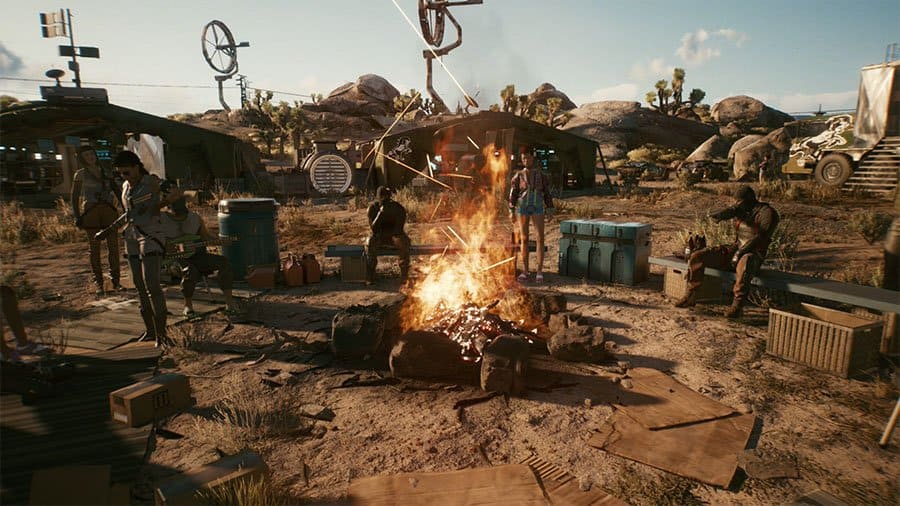
CD PROJEKT RED has done an incredible job with the cyberpunk visuals and world building. There are pulsing neon lights lining the sides of the street, every person you encounter is modified, enhanced, and customized, and every vehicle is teeming with modifications and tech upgrades. Every region, every street, every back alley of Cyberpunk 2077 is a visual feast to explore – although sometimes that feast does look like it belongs in the PlayStation 3 era. From the darkened alleys filled with drug addicts and undesirables to the bustling markets where they trade everything from old CDs to black market entertainment, Cyberpunk 2077 is on its surface an absolute pleasure to experience. At least, at first.
Once you scratch beneath the surface, what appears to be a bustling cyberpunk world quickly becomes a very scripted and often awkwardly designed mess. For every fine detail, for every realistic animation, for each single effort a developer has made to immerse the player in this environment, there are a dozen issues undermining every single one. Characters floating off the floor, sitting on chairs that don’t exist, standing around in a T pose, vehicles disappearing through the floor or soaring off into the sky. The game crashes regularly, missions are bugged, and progress is hindered. Cyberpunk 2077 is a buggy, unfinished, and quite frankly embarrassing mess.
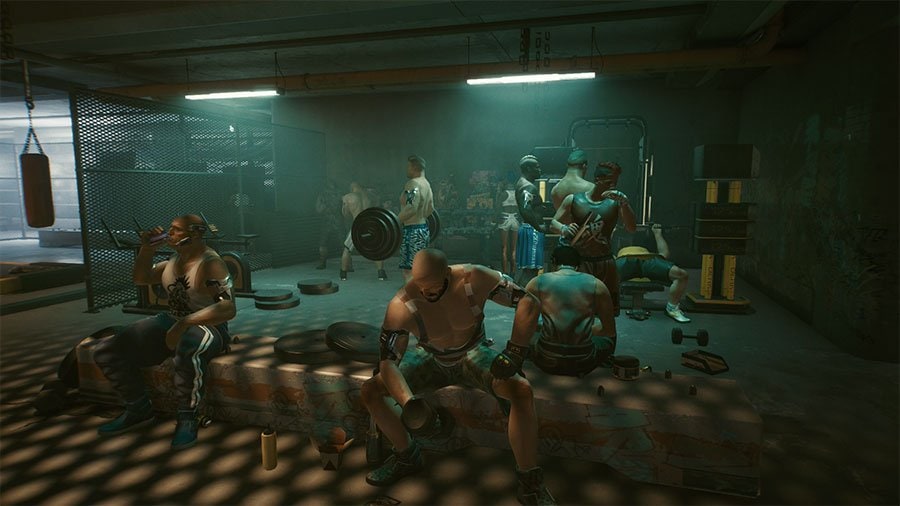
However, it’s impossible to deny that I absolutely love the game and have had so much fun in the 45 hours I’ve played. I would be the first to criticize a review that featured that last paragraph, alongside this same score. Even writing this now, it feels odd. When it works and flows as intended, Cyberpunk brings together the very best storytelling, the very best character design, and the very best creative direction I’ve seen in an open world game for such a long time. Yes, it’s broken, it’s buggy, it’s a mess, and it’s not for everyone in its current state. However, if you have the patience, it’s still a dark, gritty, and rewarding venture into the seedy underworld of the Cyberpunk universe.
Cyberpunk 2077 struggles with the surface elements of the game, the top layer stuff that is usually the icing on the cake. Despite these obvious flaws that are apparent wherever you go, there are many features and systems that work so flawlessly, it also makes you forget you’re playing such a mess of a game.
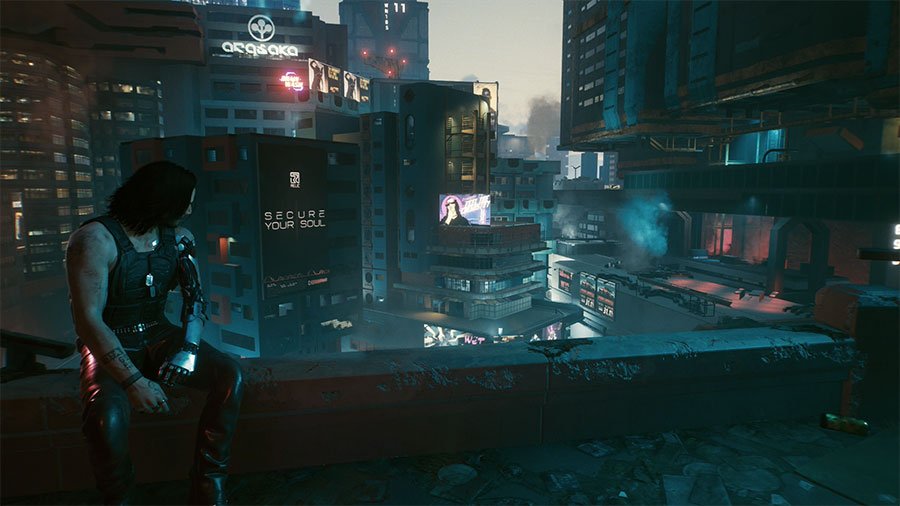
The combat is fantastic, blending together action-packed first-person shooting with a detailed and highly rewarding character customization and progression system – one that would be incredibly difficult to match in any non-cyberpunk setting. The shooting is fluid, fast, and impactful. You feel each bullet, each hit, and each drop of the bass with the great combat accompanying soundtrack. You can run into a room and wipe out a group of enemies with a cybernetically-implanted mini rocket launcher built into your wrists, or you can sit on a building across the way. Manipulating the technological instruments in and around the room to create diversions, force enemies to attack each other, or just remotely detonate one of their grenades.
Cyberpunk 2077 blends the freedom of approach from Assassin’s Creed, with almost every mission having multiple angles of attack, with the futuristically-styled tech from the Watch Dogs games, allowing V to manipulate devices and control security cameras. It’s this varying style of approach that keeps the game fresh from start to finish.
Although I spent much of my time doing a run-and-gun style approach to combat, there’s a huge character progression system that, at first, felt a little flat and void of options. Looking through the six different attributes and the accompanying lengthy list of perks to unlock, a lot of it just felt like fluff. Made up of minor improvements and passive upgrades, nothing really caught my imagination. After a few hours exploring Night City, completing side jobs, and hunting down gang members, the system began to expand at a pace I was not expecting.
The jack-of-all-trades build is very much an option, but it’s the least rewarding and least exciting by a long shot. My initial character design was a small blend of stealth and gunplay, but as I explored more areas of Night City and obtained more items to use and upgrade, I noticed the harmony between the character progression system, the cybernetic modifications, and the arsenal of guns and equipment you can find. Each fits into specific builds like a carefully constructed puzzle; it’s difficult to see at first, but once you start sliding the pieces together, it really starts to shine.
Cyberpunk 2077 manages to deliver in an area so many games fail to capitalize on: rewarding the player. It sounds simple, but how many times have you spent ages clearing out an enemy camp in Assassin’s Creed or Far Cry, only to leave with menial rewards that weren’t worth the time? Every activity, every distraction in Cyberpunk 2077 felt rewarding. The item system is expansive, with a huge variety of different weapons, rarities, and crafting options. It’s a lot of fun; I’ve completed the main story and a ton of the side content, and I still don’t feel I’ve even scratched the surface of how strong my character could become.
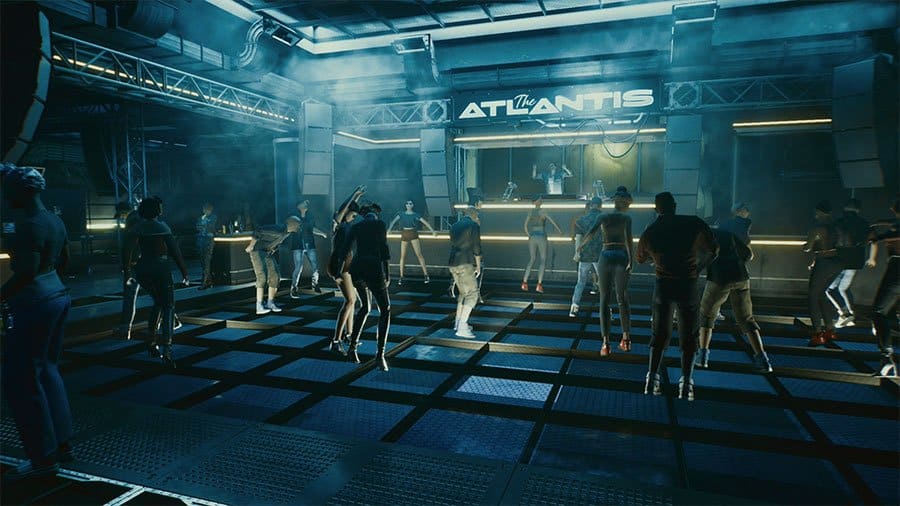
The one area of Cyberpunk 2077 that remotely functions like a traditional AAA experience is the story. While it’s not a technically flawless experience, it’s definitely the strongest area in the game in terms of stability and quality. With the current state of the game and with so many people struggling to progress on other platforms, I won’t go into the finer details, but it’s brilliant.
V’s journey is one that is very personal to the player. From the experiences they have to the friends they make to the enemies they rub out, the main narrative feels so alive, seamlessly branching out into optional content. One particular character Panam, another Nomad struggling to find her place in the world, is first introduced during the main story. As you progress, however, additional missions become available. As you explore V and Panam’s relationship further, you learn of her struggling Nomad family and begin to build bonds with her and her allies. These stories are so emotionally driven and impactful, and yet they merely serve as optional content, stories the player could miss entirely.
This same narrative style breeds throughout the game, giving players the opportunity to dive into stories that could just as well serve as a main narrative in any other game. Though much of Cyberpunk 2077 is in need of serious help, the memorable characters and great voice acting make this one area truly excel.
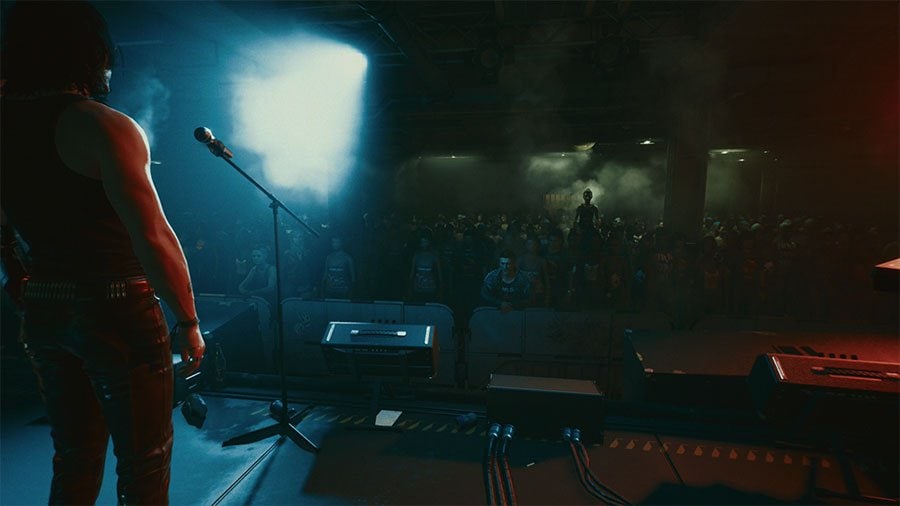
Ignoring the plethora of obviously broken things that should never have seen the light of release, Cyberpunk 2077 does suffer with certain design choices. Inventory management is far too time consuming. Constantly having to navigate through a clunky and unresponsive UI system to dismantle weapons and items stops being fun after the first few hours, and quickly becomes a frustrating waste of time. It got to the point that I just stopped looting basic items.
Cyberpunk 2077’s main story is well designed and fluid from start to finish, but if you take the time to stop and smell the holographic roses, it can often become quite overwhelming. New contacts are constantly contacting you by phone, unlocking job after job after job. While nearly all of the side content I’ve completed to this point has been great, the pace in which it is thrown at the player is a little too hasty.
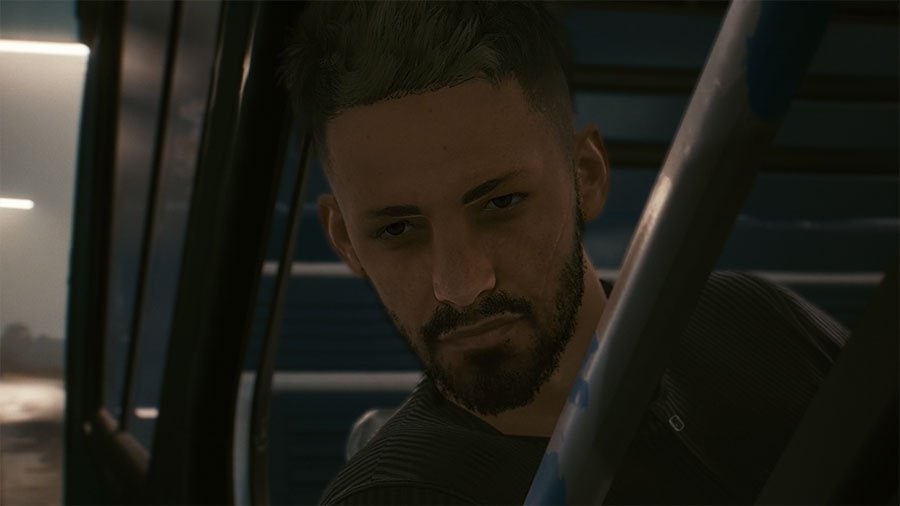
Cyberpunk 2077 is a great game, but it could have been an incredible game that defined a generation. Instead, it falls victim to its own ambition and the industry’s constant desire to push, push, push it out. In its current state, it’s not for the faint of heart, and even hardcore Cyberpunk fans may struggle to stay interested amidst all the crashes and issues. If you have yet to pick it up, wait a few months and you could very well be treated to the experience we were all hoping for at launch.
